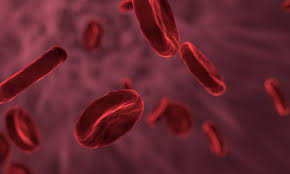
Breaking News
 Sunday FULL SHOW: Newly Released & Verified Epstein Files Confirm Globalists Engaged...
Sunday FULL SHOW: Newly Released & Verified Epstein Files Confirm Globalists Engaged...
 Fans Bash Bad Bunny's 'Boring' Super Bowl Halftime Show, Slam Spanish Language Performan
Fans Bash Bad Bunny's 'Boring' Super Bowl Halftime Show, Slam Spanish Language Performan
 Trump Admin Refuses To Comply With Immigration Court Order
Trump Admin Refuses To Comply With Immigration Court Order
 U.S. Government Takes Control of $400M in Bitcoin, Assets Tied to Helix Mixer
U.S. Government Takes Control of $400M in Bitcoin, Assets Tied to Helix Mixer
Top Tech News
 SpaceX Authorized to Increase High Speed Internet Download Speeds 5X Through 2026
SpaceX Authorized to Increase High Speed Internet Download Speeds 5X Through 2026
 Space AI is the Key to the Technological Singularity
Space AI is the Key to the Technological Singularity
 Velocitor X-1 eVTOL could be beating the traffic in just a year
Velocitor X-1 eVTOL could be beating the traffic in just a year
 Starlink smasher? China claims world's best high-powered microwave weapon
Starlink smasher? China claims world's best high-powered microwave weapon
 Wood scraps turn 'useless' desert sand into concrete
Wood scraps turn 'useless' desert sand into concrete
 Let's Do a Detailed Review of Zorin -- Is This Good for Ex-Windows Users?
Let's Do a Detailed Review of Zorin -- Is This Good for Ex-Windows Users?
 The World's First Sodium-Ion Battery EV Is A Winter Range Monster
The World's First Sodium-Ion Battery EV Is A Winter Range Monster
 China's CATL 5C Battery Breakthrough will Make Most Combustion Engine Vehicles OBSOLETE
China's CATL 5C Battery Breakthrough will Make Most Combustion Engine Vehicles OBSOLETE
 Study Shows Vaporizing E-Waste Makes it Easy to Recover Precious Metals at 13-Times Lower Costs
Study Shows Vaporizing E-Waste Makes it Easy to Recover Precious Metals at 13-Times Lower Costs
Scientists In Britain May Have Just "Accidentally" Found A Cure For Cancer

Researchers at Cardiff University that were in the midst of analyzing blood from a bank accidentally stumbled into an "entirely new type of T-cell", according to The Daily Wire. The new cell carries a "never before seen" type of receptor that acts like a grappling hook, latching on to most human cancers.
Prior therapies, called CAR-T and TCR-T, which use immune cells to attach to HLA molecules on cancer cells' surface, are incapable of fighting solid tumors, the article notes. HLA molecules vary in people, but the new therapy instead attaches to a molecule called MR1, which does not vary in humans. This gives the therapy a chance of fighting most cancers.
It also means people could share the treatment, which could allow banks of cells to be stored and offered quickly, as needed.
The treatment has already worked on lung, skin, blood, colon, breast, bone, prostate, ovarian, kidney and cervical cancer cells. The study stated:
Human leukocyte antigen (HLA)-independent, T cell-mediated targeting of cancer cells would allow immune destruction of malignancies in all individuals. Here, we use genome-wide CRISPR-Cas9 screening to establish that a T cell receptor recognized and killed most human cancer types via the monomorphic MHC class-I related protein, MR1, while remaining inert to noncancerous cells … These finding offer opportunities for HLA-independent, pan-cancer, pan-population immunotherapies.

 Smart dust technology...
Smart dust technology...

